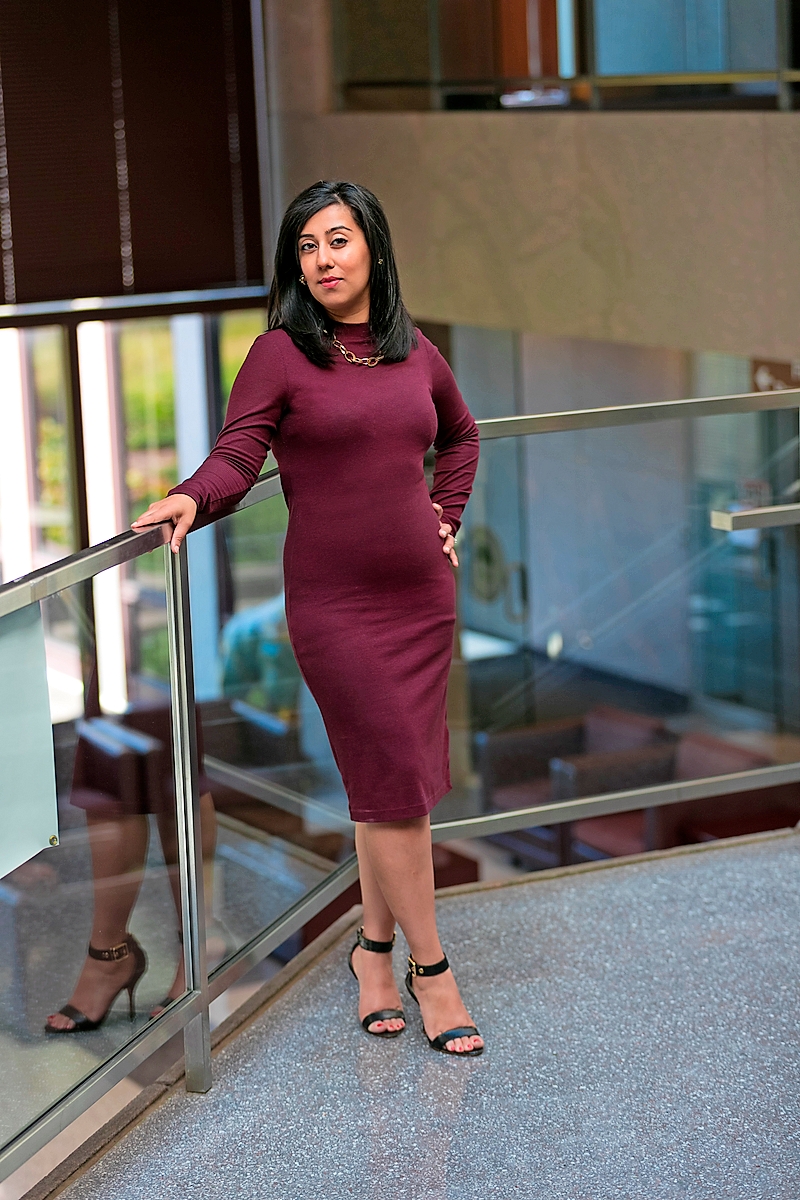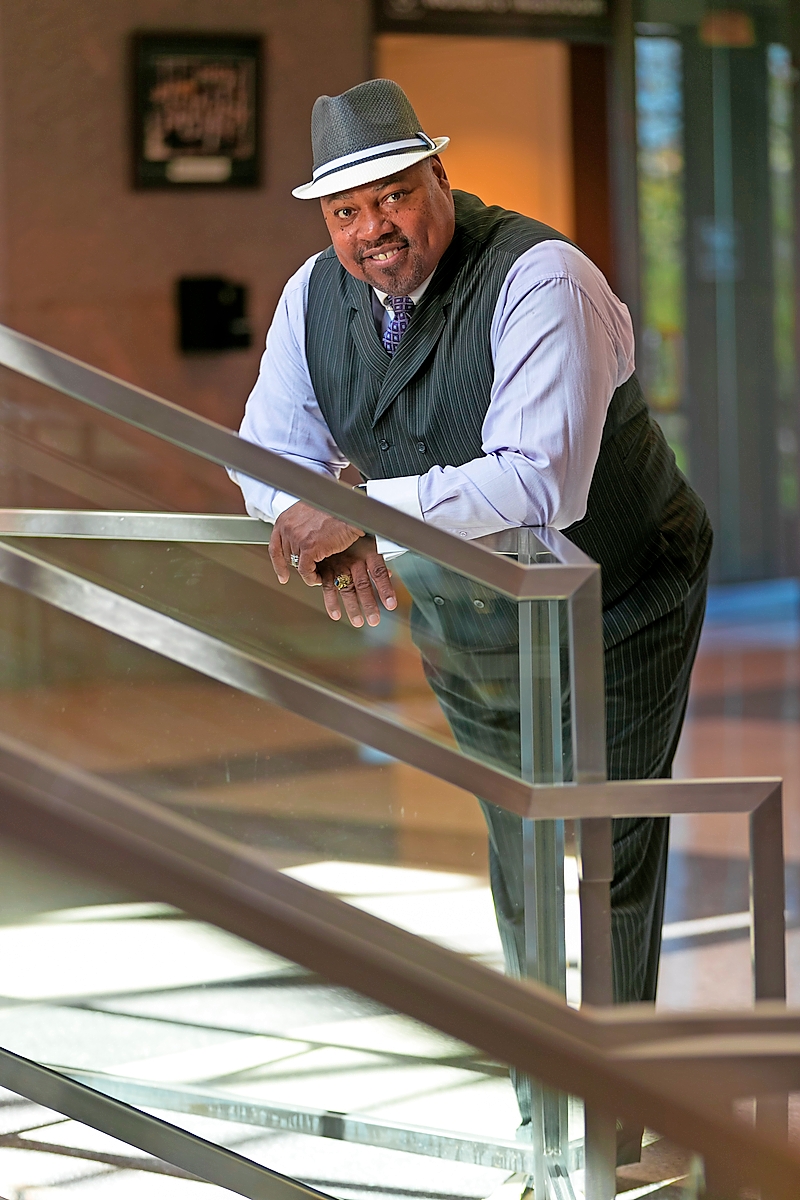All Together Now
By Lisa Arnett
November 2017 View more Featured
Meet three passionate activists promoting equality and civil rights in DuPage County
The three faces you see on our cover this month all have one thing in common: They are working tirelessly to make our community a welcoming place to live in for all. From preventing hate crimes through education to promoting voters’ rights to advocating for immigrants, they’ve been busy. Read on for their inspiring stories.

ADVOCATING FOR IMMIGRANTS
Cristobal Cavazos
Cofounder of Immigrant Solidarity DuPage
There’s no question that Cristobal Cavazos was destined for activism from an early age. “Teachers would say I was rebellious with a good heart,” says Cavazos, who lives in Wheaton. “I can remember when I was a kid and hearing Martin Luther King, Jr.’s ‘I Have a Dream’ speech and starting to cry. It just moved me so much and I knew there was more in this world than just economic security and doing what everyone else does.”
Hearing stories of systemic abuse from his parents, who met in Texas as migrant workers, stuck with him from an early age. After studying Spanish and international studies at North Central College in Naperville, Cavazos completed his masters in political science at Northern Illinois University in Dekalb and became active in the DuPage Peace Through Justice Coalition. Spurred by the proposal of the Border Protection, Anti-terrorism and Illegal Immigration Control Act of 2005 (aka the Sensenbrenner Bill) and the immigration reform protests that followed in 2006, Cavazos cofounded Immigrant Solidarity DuPage, a community-funded activism group, in 2007 with Rafael Vieyra.
“Our mission is to educate, organize and mobilize DuPage County around the collective struggle of the Latino community,” he says. From its home base, Casa DuPage in Wheaton, the group helps immigrants facing wage theft and abusive labor practices. “We recognize that immigrant rights are human rights and you can tell very much about a society by the way they treat their immigrants. DuPage County is ostensibly a very wealthy county, but there is abuse [of rights] and the scary thing about the suburbs is there’s no centralization here,” he says. “When there is an abuse, people [don’t] know where to turn. … We want to be an organization that people can go to with any kind of struggle—policies, [deportation] raids, even helping people with rent and recourse.”
The group’s current focus is lobbying Representative Peter Roskam for the protection of Deferred Action for Childhood Arrivals (DACA), the passage of the Dream Act and comprehensive immigration reform, Cavazos says.
Another future focus is advocating for an increase in minimum wage. “We want to wage a war on poverty in Du-Page,” he says. “We want to see towns like Naperville pass legislation saying we are going to break this cycle and … call on $15 [minimum wage], particularly for the big guys, companies that have twenty or more workers here, that they provide jobs with a living wage and not a poverty wage.”
 PREVENTING PREJUDICE
PREVENTING PREJUDICE
Sadia Covert
Hate crime bill author and founder of UCARE
In 2014, Naperville resident Sadia Covert remembers hearing reports of a Westmont man vandalizing a Lombard synagogue. That incident, along with a series of other bias-motivated crimes that made national news that year, moved her to take action to prevent hate in her community.
“Instead of complaining about it and feeling bad about it, I decided to do something about it,” says Covert. “A lot of the time, [a hate crime] is born out of ignorance. So how do you defend against ignorance? You do it with education.”
Covert launched a campaign called Fight Hate with A.T.E., standing for “amend, train and educate.” As an attorney who runs her own practice, Covert & Covert, with her husband Brian, she saw that hate crimes were underreported and underprosecuted and she thought both of which could be improved by strengthening Illinois’ current hate crime law.
She worked with sponsors Representative Stephanie Kifowit and Senator Heather Steans to create HB2390, which requires diversity education for those convicted of hate crimes and removes the $1,000 cap on restitution for victims. Governor Bruce Rauner approved the bill on August 22 and it goes into effect January 1, 2018.
The bill’s passage checks off the “amend” part of Covert’s campaign. Next is to train law enforcement and prosecutors to recognize and prosecute hate crimes. To bolster the “educate” component, she founded a grassroots nonprofit organization called UCARE (Uniting through Cultural Awareness and Regional Education) in 2015. “The mission is to counter hate and ignorance through diversity education and community empowerment,” she says.
“One way to get rid of racism … is to defeat that ‘us-versus-them’ mentality and to really unite everybody together. I don’t mean just minorities; I mean everybody. If you are a human being, you are part of the group,” Covert says. “I have two sets of in-laws: One is very, very Republican and the other set is very, very liberal Democrat. And I’m married to a white Caucasian and I am Pakistani-American. It gives me a lot of perspective and I hear the grievances on both sides. I’m no one to dismiss anyone’s grievances, but I will find solutions.”
At press time, Covert had just announced her plans to run for DuPage County Board for District 5.
“Honestly, the work that I do right now—what I’ve done and what I continue to do—is to set a good example for my children so when they grow up, they can also be responsible citizens in society,” she says.
 CHAMPIONING CIVIL RIGHTS
CHAMPIONING CIVIL RIGHTS
Michael Childress
President of DuPage County’s NAACP chapter
By day, Bloomingdale resident and self-proclaimed political junkie Michael Childress manages a call center for Verizon. By night, he’s the face of the local chapter of the National Association for the Advancement of Colored People (NAACP), the country’s oldest grassroots civil rights organization.
“I’m an avid believer in civil rights, so you can combine community activism and civil rights and it’s a natural progression that I would end up at the NAACP,” Childress says. In 2005, Childress looked up his local chapter. “They put me to work right away in political action because I have a burning passion for that.”
He became the chapter’s political action chairperson, promoting voter’s rights ahead of the 2008 presidential election. “I was out knocking on doors and handing out remember-to-vote fliers at the train stations the day of the election.”
Childress moved on to become chapter vice president and then president a year and a half ago. “I’ve met with numerous police chiefs and we’re starting to create partnerships because we don’t want to see DuPage turn into a Ferguson or a Baltimore,” he says. “We want to keep the dialogue with our police chiefs open and they’ve been very receptive to us.”
“[There are some] people [who] think that NAACP has lost its effectiveness and outlived its usefulness, and now I see people coming back into the NAACP [who] have been gone for a long time, and with that, you have to think that there’s a need for organization,” Childress says.
During good times, people tend to put community involvement on the backburner, Childress says. “They tend to want to play with their Xboxes and go play golf, until something like a tragedy happens and then we want to give back to the community. … My thought is that we should be thinking more about prevention than tragedy,” he says. “I’m starting to hear more and more people wanting to get involved … [and] people telling me about how they didn’t vote in the past and now they vote. They always thought someone else was going to take care of it for them.”
The chapter is currently preparing for the Freedom Fund Gala on February 25, its largest annual fundraiser that helps fuel operations and fund youth scholarships, and voters’ rights continues to be a focus headed into upcoming elections, Childress says. “The only place that every person is truly equal is in the voting booth.”


